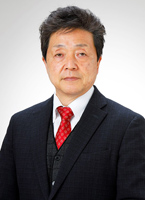When the Authenticity of Family-Oriented Management Is Revealed Hajime Ota (Professor, Doshisha University)

In an era of labor shortages due to the declining birthrate, many companies are struggling to retain their employees.
Japan’s traditional family-oriented management has come to be re-evaluated as a result. The president and employees are likened to a parent and child, and the employees to each other as a family, and while the company protects the employees, it tries to draw out the attachment of the employees to the company and the contribution that goes beyond the calculation of interests.
In recent years, there has been an increase in the number of young people who quit their jobs immediately after being scolded or given too much of a burden. As a result, managers and managers have become very careful about their subordinates, and many companies value young employees to the point of being overprotective.
But that is only as long as the employees are loyal. Once you take a dry attitude toward the company or tell them your intention to leave, there are companies that treat you ruthlessly as if you turned your palm back.
It may be said that “more than cuteness is a hundred times more hateful”.
In Japan, there has long been a “common sense” that it is natural to continue working at the same company unless there is an extraordinary reason, and there has been a culture in which people who quit halfway are seen as traitors.
Even now, there are companies that say retired employees never go through the gates of the company again, and there are people who say they were sprinkled with salt when they quit.
Overseas, on the other hand, it is not uncommon for people who have moved to other companies to come back, and many companies work together as business partners with former employees who have become independent, or outsource work to former employees.
In Japan as well, mid-career retirement has become common in recent years, regardless of whether the company is large or small. An increasing number of companies are adopting U-turn hiring (comeback system) and the alumni system, in which retirees form networks and build cooperative relationships with their former companies.
For the company, the ability and personality of the other person is known, so it can be re-employed or placed an order for work, and for the former employee, knowing the outside world can make a relative evaluation of the company. There are merits such as obtaining a stable income even if you become independent. It is a mutual win-win relationship.
As an interesting example, when a company hired new graduates on the premise that they would be able to become independent within three years, the number of employees who quit within three years decreased dramatically.
It seems that the senior employees are taking care of the newcomers so that they can be independent. It would be better to no longer regard employees quitting as taboo, and to create a system in which both the company and the individual would not lose out even if they quit mid-term.
In the first place, a true family should be able to warmly send off their children as they grow and grow. “Takeshigaeshi” to a quitting employee is like exposing the fact that familism is a deception.
The remaining employees will probably think, “Tomorrow I will be myself.” It is no exaggeration to say that the authenticity of family-oriented management becomes apparent when the employees who have been trained leave the nest.
